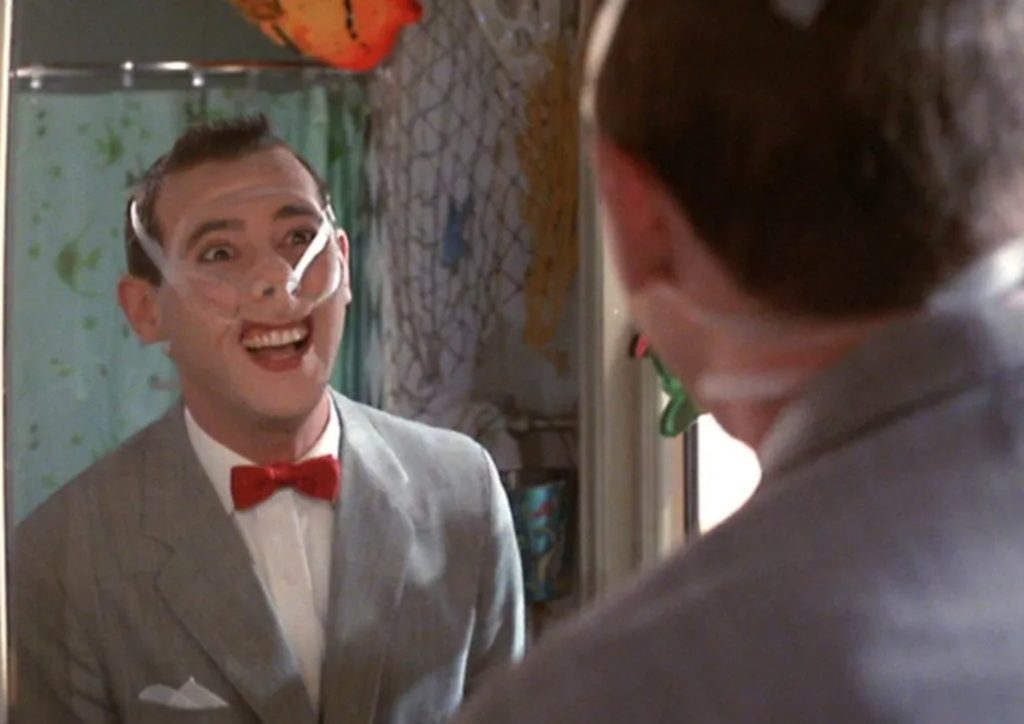|Alex Kies|

Pee-wee’s Big Adventure plays at the Trylon Cinema from Thursday, January 11th, through Sunday, January 14th. Visit trylon.org for tickets and more information.
I went to college with a guy who, among other eccentricities, would periodically dress up as Pee-wee Herman and go through his whole day, classes, work, dates, everything, in character. Now, I like Pee-wee Herman as much as the next guy, but I like Pee-wee Herman. The character of Pee-wee Herman is such a sui generis amalgamation of American culture that out of context, is, well, off-putting, especially given that this guy wasn’t Pee-wee.
I first saw Pee-wee’s Big Adventure after getting into Tim Burton by way of, believe it or not, his Planet of the Apes remake. And it was a certain amount of trepidation that I pressed play on the DVD. You see, I wasn’t even a year old when Paul Reubens was arrested for indecency in Sarasota, FL, and he was charged for misdemeanor possession of obscene material only a year earlier.
(As I’ve expounded upon at great length for this very website,) Francois Truffaut once said he could evince Edgar G. Ulmer’s goodness by watching The Naked Dawn, and his patronage of certain establishments and dubious kitsch ownership notwithstanding, I could immediately evince Paul Reubens’ from Pee-Wee’s Big Adventure.
Before the big screen, Pee-wee had been the basis of a stage show and his own children’s television program; both taking place decidedly in Pee-wee’s world. Co-writers Reubens and Phil Hartman (RIP to them both), however, cannily put Pee-wee on a Big Adventure out in the world.
This is Burton’s first feature, and while he would go one to suffuse them with sub-Lynch sunbaked menace, here, Burton’s suburbs are a child-eye perspective of postwar SoCal kitsch. The first and third acts of the film are set ostensibly in a Los Angeles full of BMX gangs, magicians, fortune tellers, studio lots filled with Roman centurions and cowboys and Godzilla and Twisted Sister.
Likewise, the middle of the film, set presumably between Los Angeles and San Antonio, where he meets ghost truckers, friendly fugitives, sad, beautiful waitresses at out-of-the-way diners, Hell’s Angels, and visits the Alamo and a rodeo. And although the supporting cast is broadly characterized, they are nevertheless less off-the-wall (or perhaps more on the wall) than Pee-Wee. They orient the audience in their reactions to Pee-Wee, which are almost uniformly gentle and in good faith. This is the secret to the sauce: there is not one jot of irony in the whole film.
The famous Breakfast Machine sequence early on is a perfect microcosm of this balance, and indeed the film itself. Although the machine’s extensive Rube Goldbergian superfluities defy credulity, it beholds all the laws of physics, all in the name of making a diner-standard breakfast but executed with uncomplicated joy.
Edited by Finn Odum
